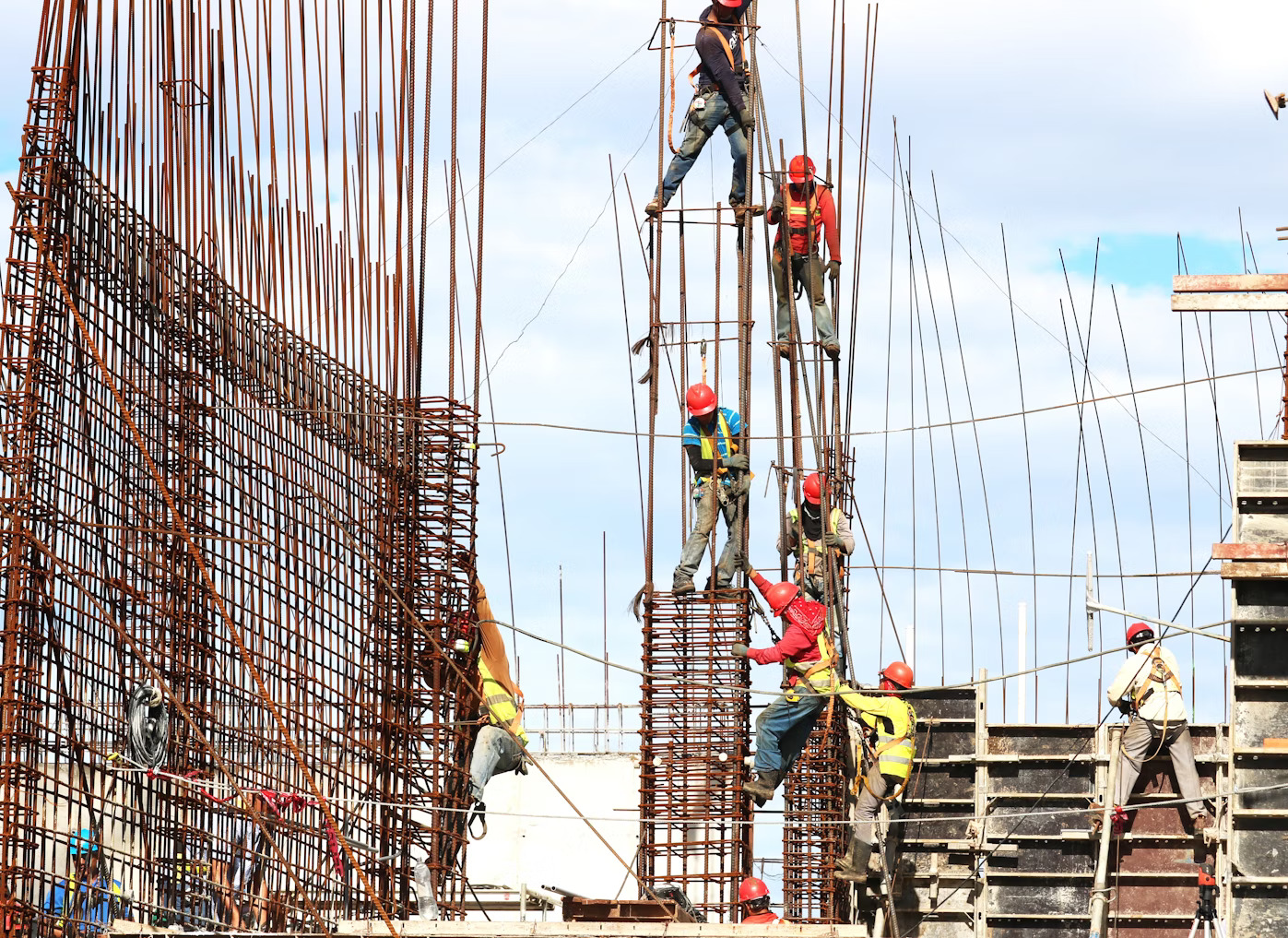
The construction industry is characterized by manufacturing and trade associated with building, maintaining, and renovating infrastructures. Workers toil away to breathe life into real estate blueprints.
Solid infrastructure is a critical index of a country’s economic vitality. However, the task of building physical infrastructure is highly risky. Construction workers often need to work at heights that involve the risk of slipping and falling.
Additionally, construction company employees are vulnerable to being electrocuted. According to the Health and Safety Executive (HSE), the construction industry accounts for the highest number of occupational fatalities/injuries. While most workers fall from a height, there are others struck by a moving object, trapped under something heavy, or come in contact with moving machinery.
When this happens, it is the employer’s responsibility to compensate the employee (for physical injuries, emotional trauma, lost wages, etc). Here’s where the workers’ compensation program enters the scene. However, businesses are struggling with hefty premiums.
There are some steps construction companies can take to prevent costly claims. In this article, we will discuss four ways in which construction companies can keep expensive claims from disrupting daily operations.
Document Everything
The first step in preventing costly claims is to keep a detailed record of all accidents that occur on a construction site. Whether you witness the accident first-hand or sense employee discomfort, it is your responsibility to gather more information and conduct a thorough investigation.
The contractor can play a major role here in obtaining surveillance footage, enquiring accident witnesses, and noting down the exact place of the accident and worker injury. A workers’ compensation claim is approved only after certain factors are accounted for.
For instance – you must find out if the employee has any previous claims or group health insurance. Also, gather information regarding the employee’s work history. If the project is large, there may be multiple liable parties involved, including subcontractors, property owners, and general contractors.
Offer Immediate Medical Care and Treatment
The first thing every injured employee will notice is their employer’s concern and care. In other words, make provisions for immediate medical care via an experienced healthcare provider. Classifying employees based on their job descriptions becomes beneficial.
You can click here to learn more about operations review and its role in employee classification. This practice will highlight your unwavering commitment to ensuring employee well-being. In case a worker refuses medical help, document that as well.
Construction contractors who fail to extend immediate care and support create a dent in the employee’s trust. If the latter feels ignored, the claims process may turn into litigation. According to the National Council on Compensation Insurance (NCCI), medical inflation on workers’ compensation is extremely high.
Just like healthcare facilities and physicians, workers’ compensation suffers from cost pressures. Providing immediate medical relief will not only foster goodwill in employees’ minds but also speed up the claims process.
Understand State Laws Regarding the Healthcare Provider
In any workers’ compensation claims process, the healthcare provider evaluating the injury may become one of the key cost drivers. The right of every individual employee to secure a doctor for evaluation may vary according to the state.
Some states do not allow injured employees to select their doctor of choice. As for others, employees are permitted to choose among healthcare providers from a pre-selected panel of physicians. The latter is the case with the state of Georgia.
Even in terms of pre-selection, there are some rules. For instance – The panel must be a part of at least one high-traffic location for easy review access. Besides adequate panel placement, the contractor must explain the purpose of such a panel to avoid disputes down the line.
Understanding state laws properly is crucial to obtaining coverage in the traditional market. According to Western Republic Insurance Services, it is best to select an insurance provider that specializes in extending solutions for high-hazard risks.
Have Light-Duty Transitional Work Programs in Place
Once an employee has been cleared to resume their work, construction contractors must work with human resource executives and supervisors to develop a relevant transitional work program. This program must fall within the limitations provided by the employee’s healthcare provider.
Such light-duty work programs will encourage employees to resume work sooner and allow the business to control costs more efficiently. Transitional programs are crucial as they demonstrate concern for the injured employee. Examples of such work would include performing inspections, office desk work, operating forklifts and trucks, etc.
Despite being fragmented to some extent, the future of the construction industry is promising with growing urbanization and technological innovation. It is expected to grow to a market value of $15192.71 billion in 2024 at a CAGR of 5.1%.
With the above-mentioned tips, construction contractors can return their employees to work on time. Apart from extending due care, they can also reduce costs and ensure workers’ compensation claims are not a reason for business derailment.
Leave a Reply